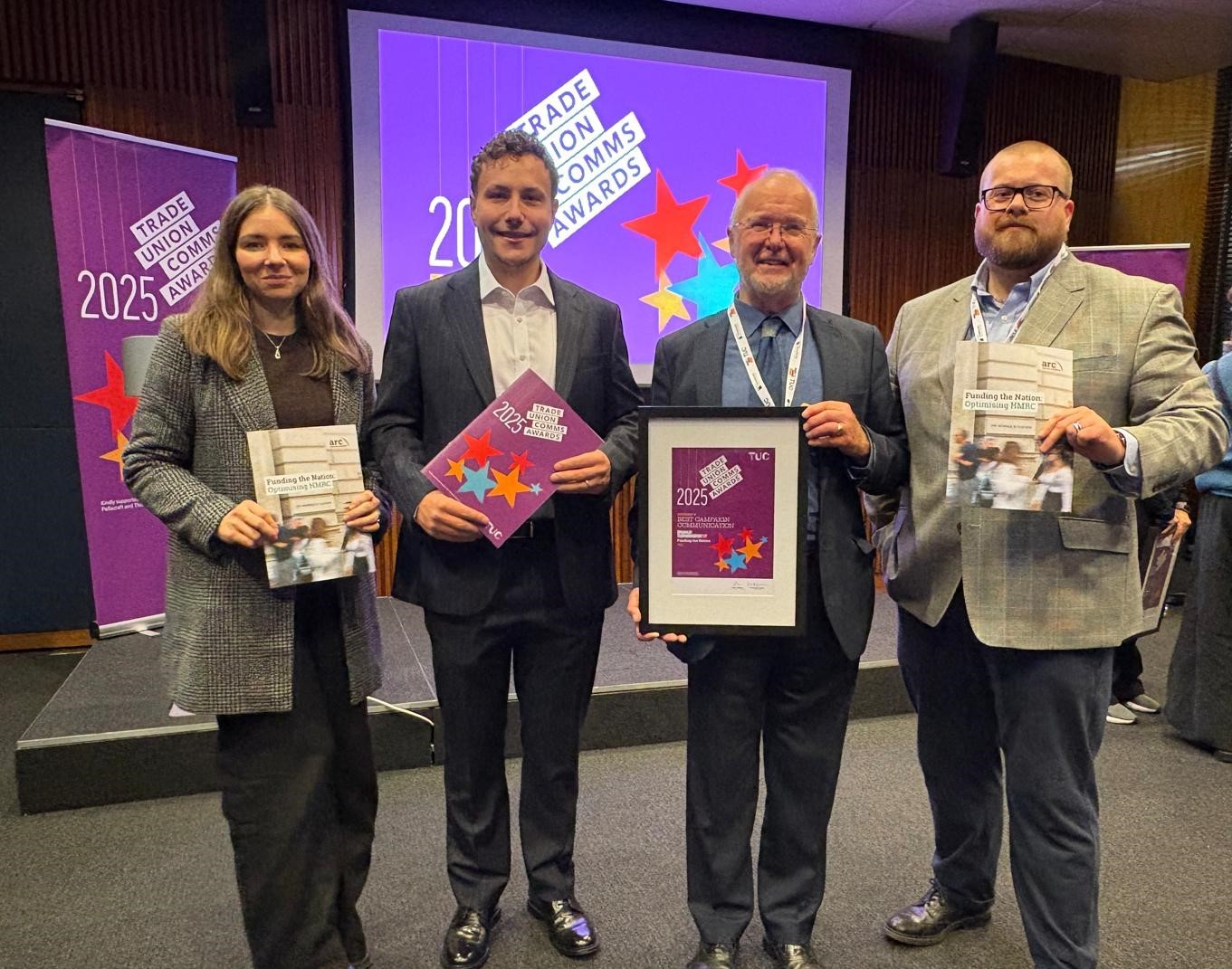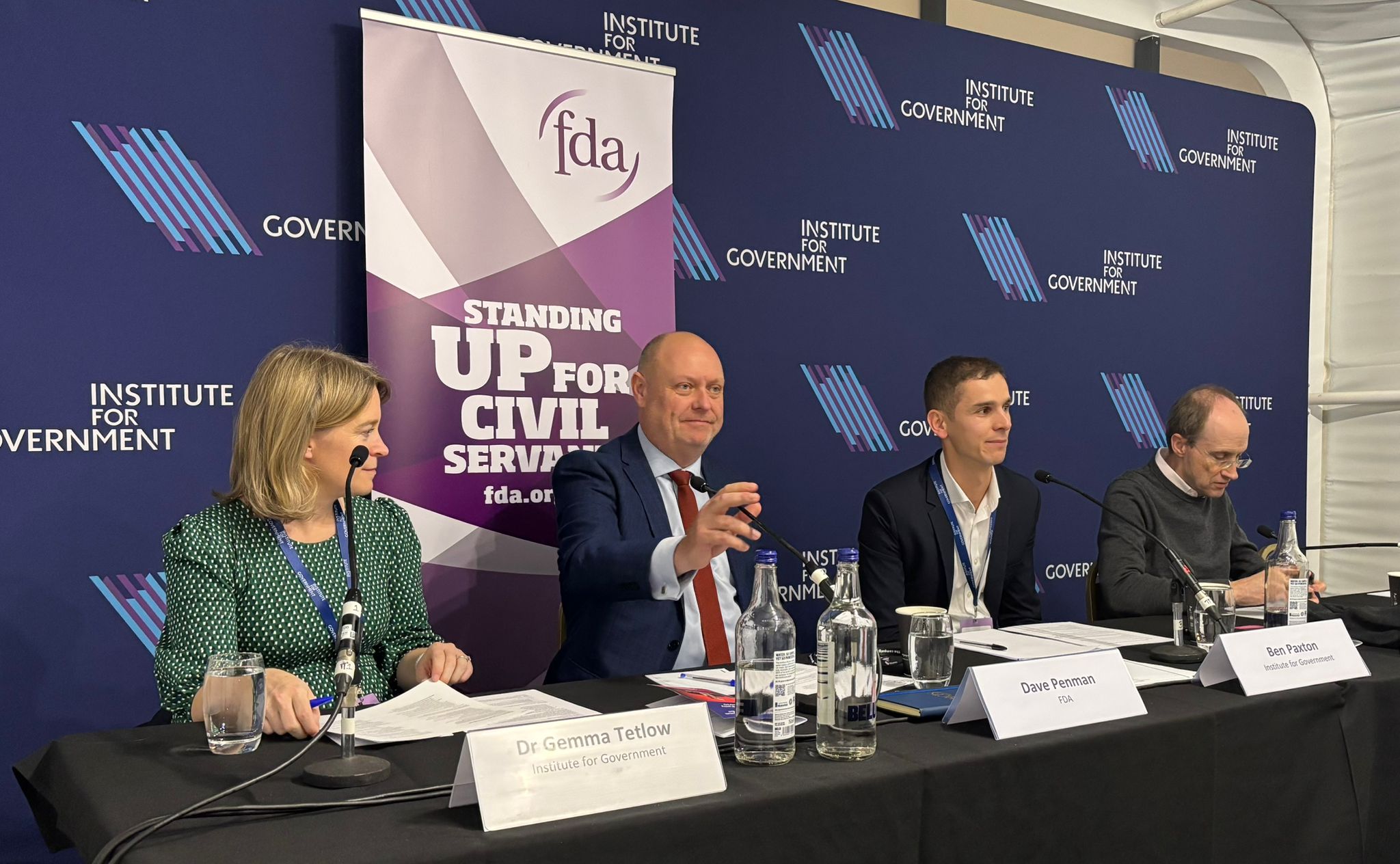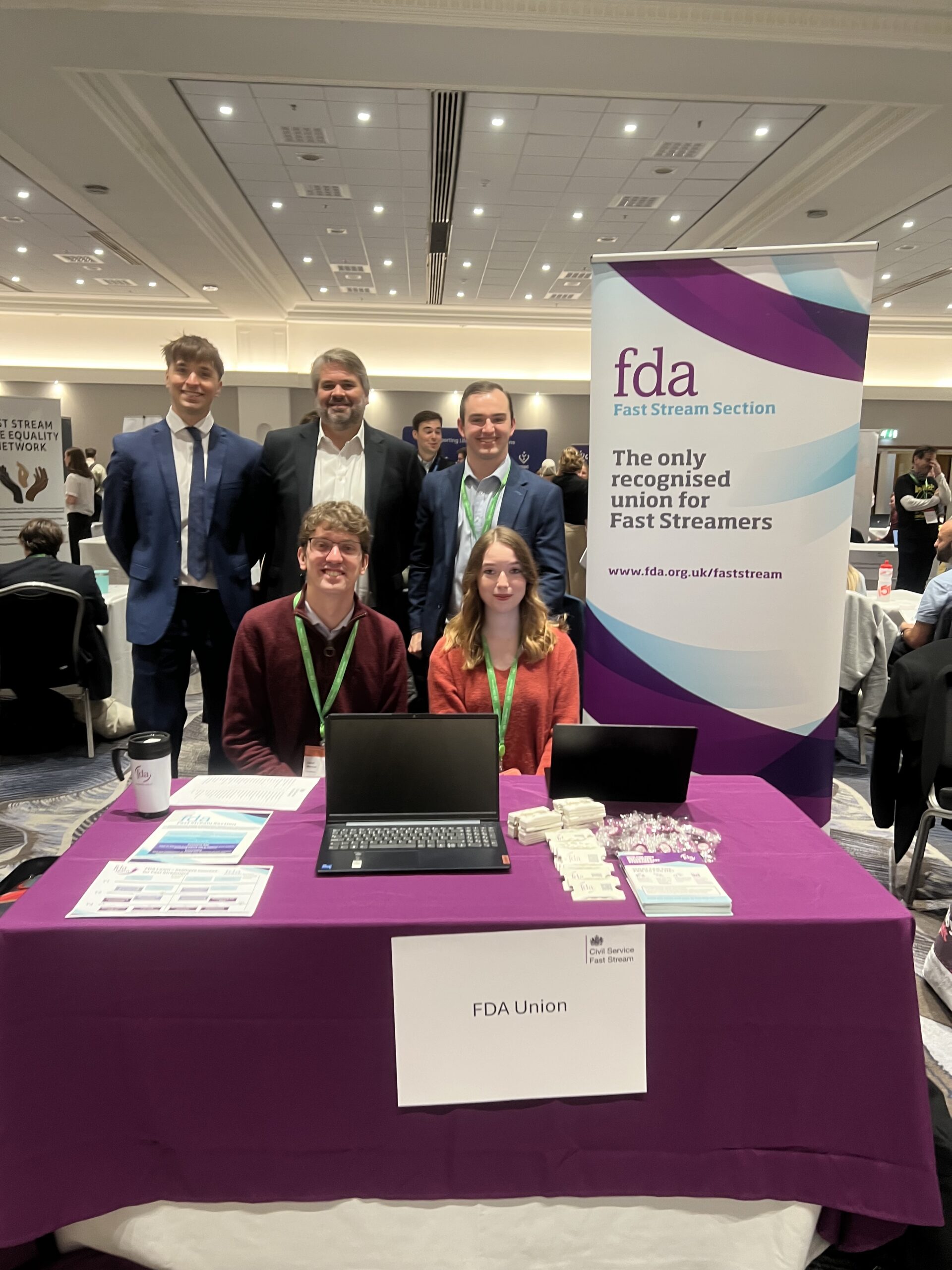“Every day I see the difference we make for millions of people across the country”
Permanent Secretary at the Department for Work and Pensions Peter Schofield discusses how his department rose to the challenge of COVID-19 and the opportunities that lie ahead.

Peter Schofield joined the civil service Fast Stream thirty years ago this September. He spent much of his early career at the Treasury, “always on the public spending side of things,” before a spell outside the service working for a private equity firm. Returning to government in 2004, he joined the Department for Work and Pensions in 2016, becoming Permanent Secretary in January 2018.
From taking over the top job, Schofield is keen to emphasise the work that the department did to “build up a sense of team” across the senior leadership long before the pandemic hit, looking at how to work across traditional functional boundaries. This meant that “when the moment hit in March 2020, that sense of teamwork was already quite well embedded.” A lot of work had also been done on business continuity plans covering, amongst other eventualities, a flu pandemic or an economic downturn. Nevertheless, he says the last twelve months has been a period of “huge changes and huge challenges.”
“I remember we had an executive team meeting on 18 March. It was quite a moment for us.” With the first restrictions being announced on 16 March, a major impact on the economy was already apparent. At that meeting, the executive team had the first sight of data from the day before and there was already a “massive surge of claims” for Universal Credit. They knew they had to rapidly focus on Universal Credit and other means-tested benefits, where payments would be the claimants’ only means of income.
This involved moving thousands of staff from other work to the areas of greatest need and it was, Schofield says, “an amazing team effort as we pulled together to manage that surge.” As an organisation previously set up to “by and large work only in the office”, they also had to contend with the fact that many people initially did not have the correct equipment to be able to work from home. He pays particular tribute to colleagues working in digital, who were able to get 2,500 devices per week out to DWP staff working at home.
“That’s the challenge for all of us as leaders across the civil service: have we been too risk-averse in transformation, in using technology, in using new ways of working?”
With the department – and wider civil service – handling this rapid change so successfully, Schofield suggests that in future the service might become “less risk averse about our willingness to try new things” when it comes to automation and transformation:
“During the pandemic, where we moved 10,000 folk off some of the business lines on to Universal Credit, we still had to serve customers on those business lines where resource had been taken away. On a number of those we had experimental technology and automation systems that we hadn’t yet rolled out. You think… what’s the risk, because we don’t have enough people to serve them in the normal, conventional way, so you might as well try the digital route.”
Schofield describes these digital solutions as having been “quite brilliant”, with more than half of new claims for the State Pension progressing through the whole process without any human contact, something which has just been introduced over the course of the pandemic. “That’s the challenge for all of us as leaders across the civil service: have we been too risk-averse in transformation, in using technology, in using new ways of working?”
Retaining the institutional knowledge that has been built up during the pandemic response will be very important to the department in responding to major events in the future, but Schofield goes further: “It’s not just about responding quickly to crises, it’s also responding to opportunities or responding to changing circumstances in the wider world.”
He argues it’s not about remembering what was done and “putting it in a drawer somewhere”, but continuing to apply it. He cites the DWP’s central role as we emerge from the pandemic in getting the country back to work, pointing out that all those people who have applied for Universal Credit in recent months are looking for work, and the department is there “helping them into work, trying new things, new schemes.” The department has already started rolling out the Kickstart scheme, which they will be building up alongside other programmes under the Plan for Jobs, and Schofield believes everything that has been learnt about reacting quickly to the needs of the public “needs to be built into how we respond in our role going forward.”
He points out DWP will have a central role in the government’s ‘levelling up agenda’: “Every community is not very far away from a Jobcentre… and DWP colleagues are in every part of the country, able to understand the needs of different communities.” He is keen to see the department continue to support people into employment but also help those already in work, but perhaps on low incomes, to progress to better paid and better skilled jobs, “supporting their communities as they do so.”
DWP must also continue to address longstanding concerns, including around access to Personal Independence Payment (PIP), with the Permanent Secretary acknowledging that, while it is a difficult system, the department knows “we need to make the system work better.” They are working with their contractors to improve assessments, and Schofield envisages a much improved and more holistic process in future, where working with NHS professionals, they are able to better help people back into the workplace. In the meantime, the department has set up a serious case panel to look at cases that have gone badly wrong, and to understand the “systemic factors” that lay behind those decisions, with Schofield adding: “we need to hold a light into the whole process.”
“DWP colleagues are in every part of the country, able to understand the needs of different communities.”
Internally, there is the ongoing issue of pay. Schofield reflects on the unique position of the DWP, with staff seeing “first-hand the impact that COVID is having on the economy and private sector jobs”, and the context in which the pay pause was announced, but he admits that this doesn’t change the fact that it was “difficult news” to hear. The department continues to look at what more can be done to “recognise the brilliant work our people deliver,” and whether there are other mechanisms they can use to demonstrate that staff are valued. He also takes the opportunity to pay tribute to the FDA’s workplace reps: “I’m a member of the FDA myself, and I value the conversations we have with all our trade union representatives, and quite rightly they raise the concerns that colleagues have.”
Schofield is keen to dispel any notion that the work of staff is not highly valued, pointing out that the work of DWP has been “continually praised by ministers throughout the pandemic, before adding his own reflections: “Every day I see the difference we make for millions of people across the country.”
The future of work: “It is possible to be a visible leader on Teams or Skype”

Some jobs, he says, will still need to be done in the office, and being in the workplace some of the time is important for building relationships – particularly with new colleagues – but that more flexibility is good for people: “You’ll want to have people coming into the office, but not necessarily five or six days a week… you might want to have a blend, and I certainly intend to do that in terms of my own working pattern.”
“The blend will vary in different parts of DWP” depending on business and customer need, but even where they need to offer face-to-face contact, the department has found other ways of providing this over the last year, using video calls, or through other online channels and they are evaluating how effective these are compared to the norm.
The pandemic has proven, Schofield points out, that is entirely possible “to be a visible leader, at whatever level you are, without having to travel all around the country.” Face-to-face contact will remain very important to him and the department, but they have learnt that it possible to be visible “using Teams or Skype or Zoom.”
Universal Credit: “I don’t know how we’d have coped if we didn’t have it”
Addressing the regular criticism of Universal Credit, the DWP Permanent Secretary is clear that the way the system has coped during the pandemic proves its value, admitting he doesn’t know “how we’d have coped” without it. “As a digital system it is much more straightforward to scale it up.” On the legacy, paper-based benefits, someone would have to “plough their way through” thousands of forms, but with “people making claims online, and the automation that goes along side that, we could deal – and we showed that we could deal – with, on some days, over 100,000 claims on a single day.”
In Schofield’s view, this proved the power of UC, and “the value of digitising our benefits system.” DWP was able to keep its payment timelines above 90%, the level it was pre-pandemic. He also stresses the value of having access to management information in real-time: “We could see where the different claims were in the process and what the work was that needed to be done to make sure each of those payments got over the line in time.”
Between March and September, the department, Schofield says, was able to process 3.9 million claims, which he describes as an “astonishing number”, adding that “I pay fantastic tribute to everyone working on Universal Credit.”
Related News
-

FDA highly commended for Funding the Nation campaign at 2025 TUC Comms Awards
The FDA is delighted to have been highly commended in the Best Campaign Communication category for ‘Funding the Nation’ at this year’s TUC Comms Awards.
-

Government has “no strategy” on long-term pay and reward issues, says Penman
FDA and IfG hosted a joint fringe event at this year’s Labour Party Conference in Liverpool, discussing ‘Should public sector pay and pensions be reformed?’
-

FDA at Fast Stream Base Camp 2025
FDA Fast Stream reps have been in Birmingham for Fast Stream Basecamp, welcoming new first year Fast Streamers, speaking to them about the union’s work and how to get involved.